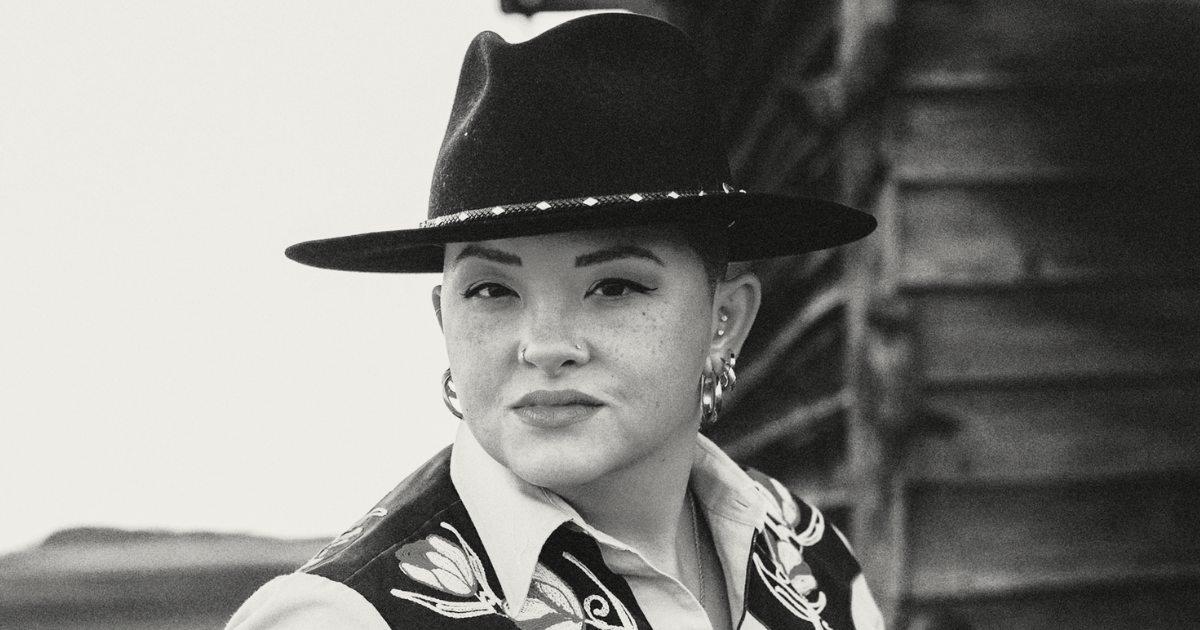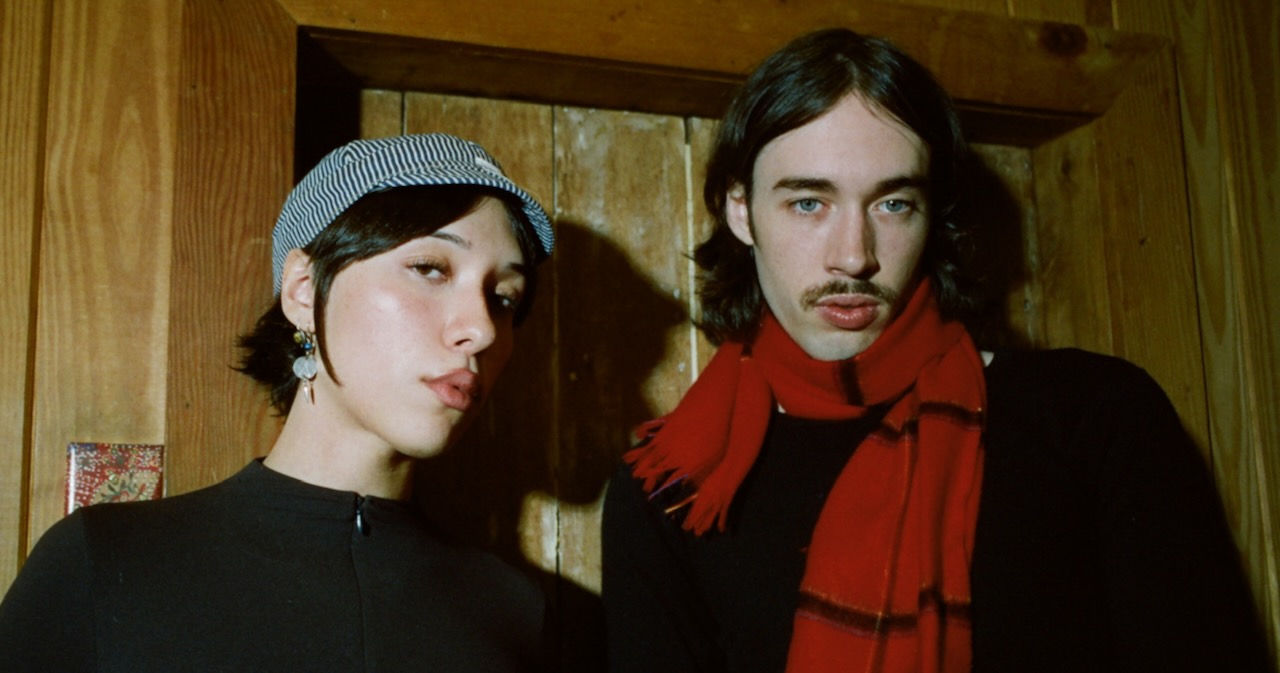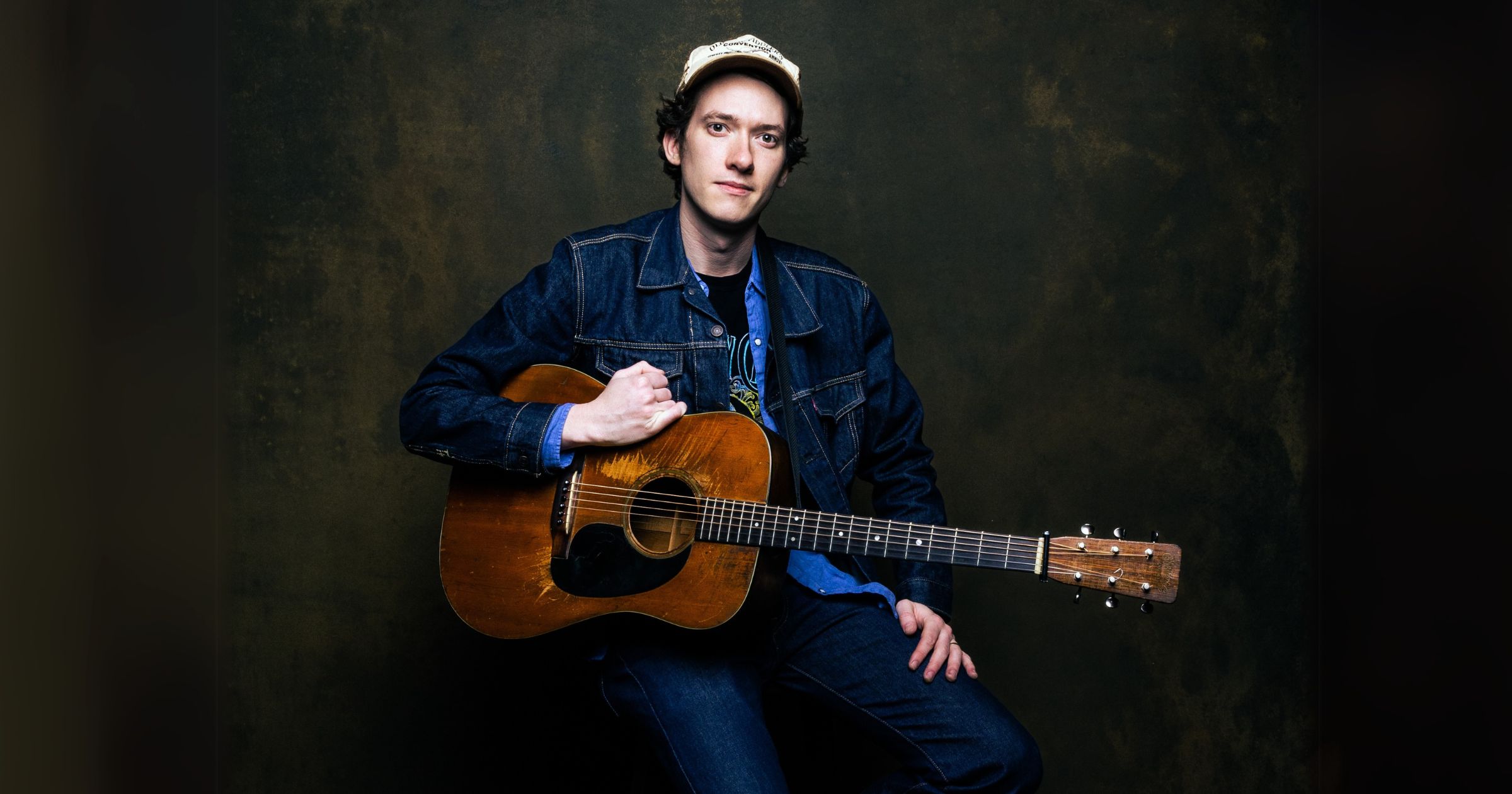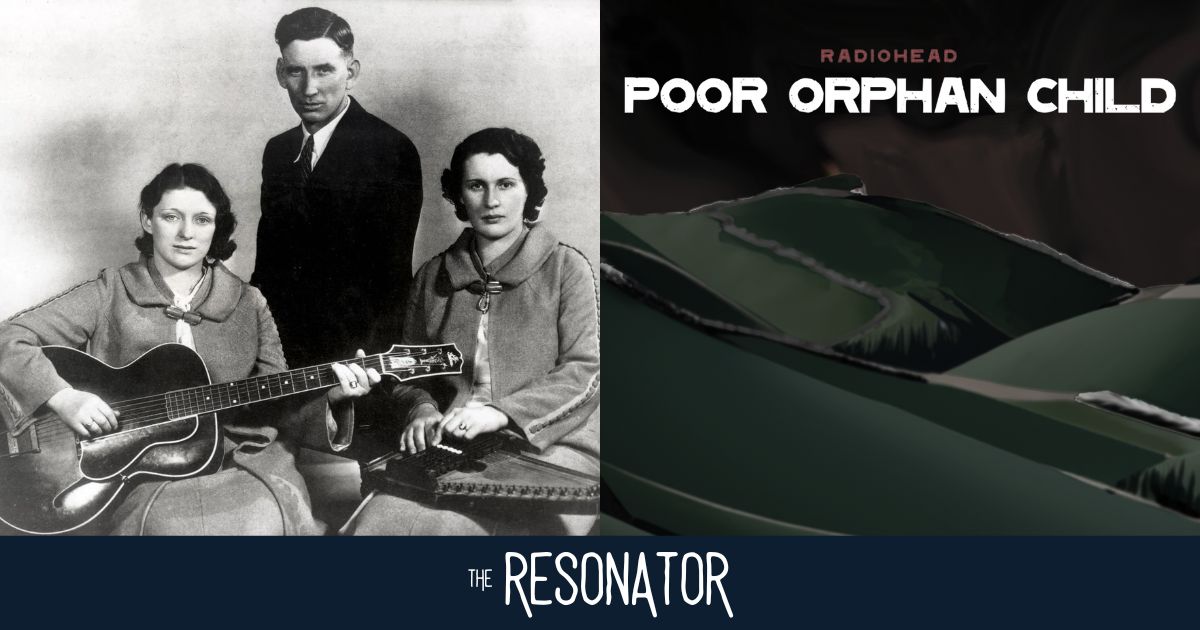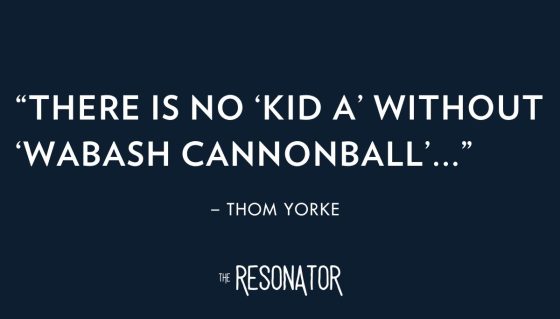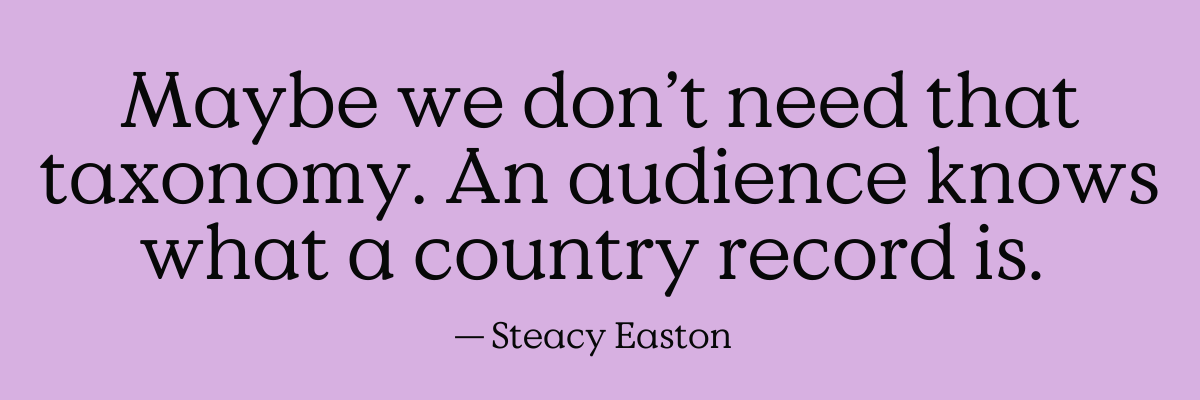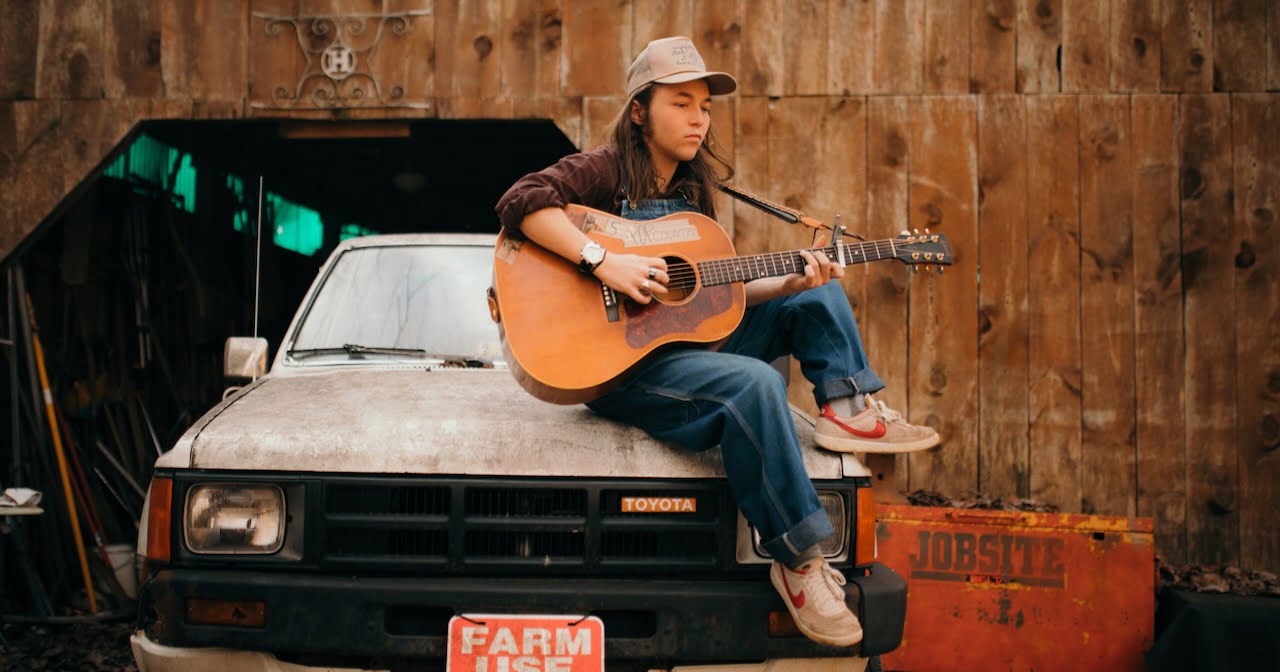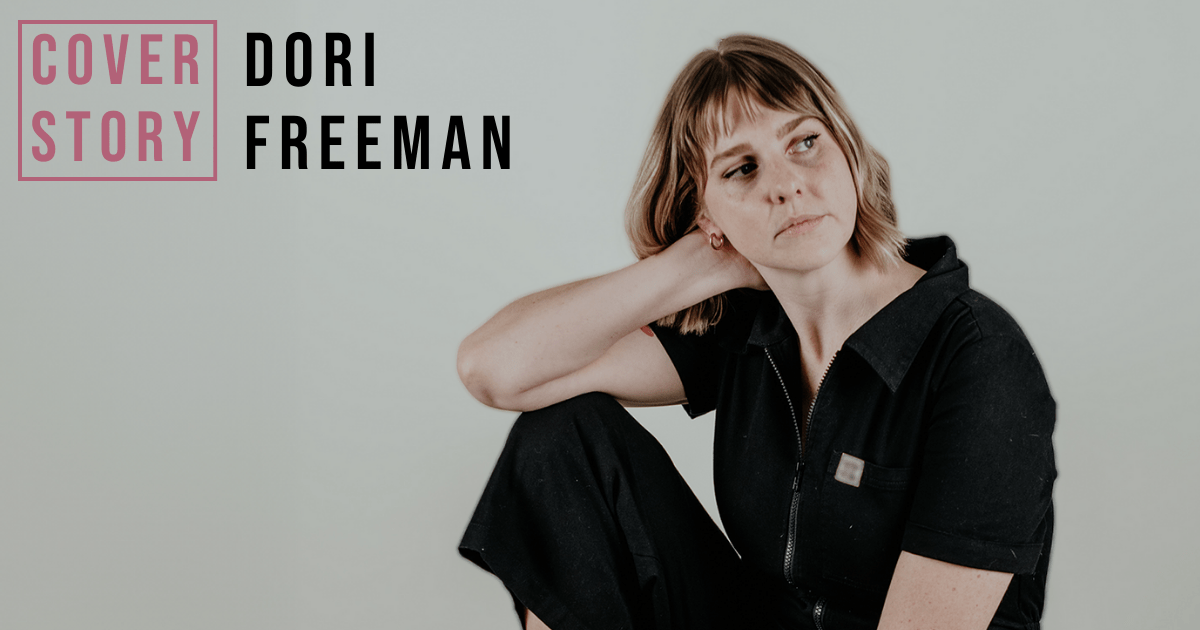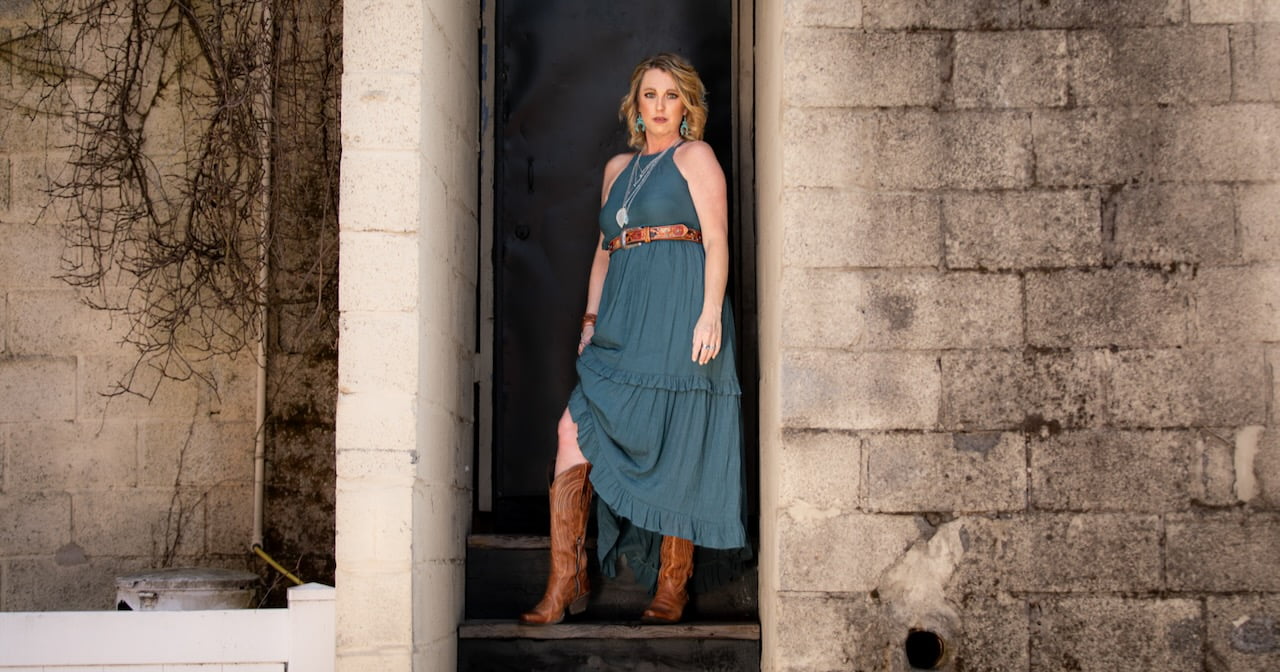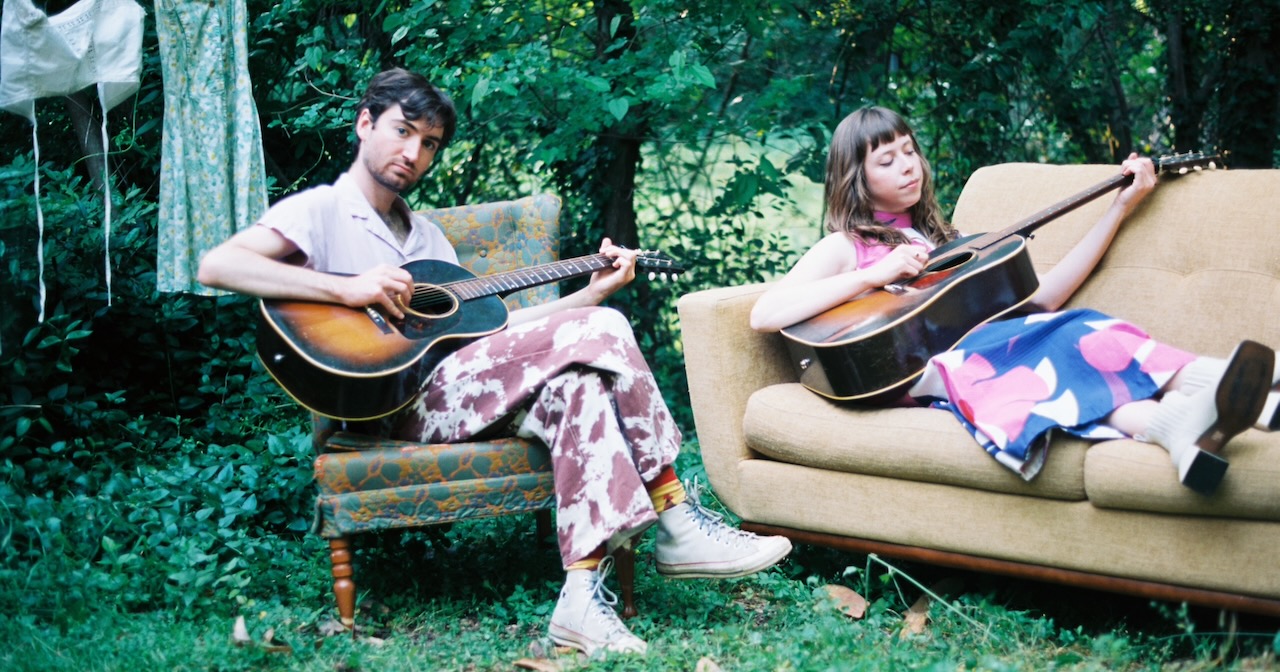Rebecca Porter has earned some much-deserved praise in the past couple years as she has emerged on the national singer-songwriter scene. Following the release of her 2023 EP, Queen of the Local, she drew the eyes and ears of BGS and Good Country’s founder and was invited to perform at Mountain Stage. Not bad for an artist who had only released five songs total.
Now, however, Porter is back with a full-length album, Roll With The Punches, which released August 8. It’s a concept recording that introduces her life story as if it were a 1970s Western film. If that seems an unlikely concept for a Guam-born, Shenandoah Valley-raised singer-songwriter, Porter concedes that maybe it is – at least on the surface.
In her recent conversation with Good Country about the project, Porter talked about how the concept came together, why she thinks people assume her music is going to sound different than it does, and what she hopes listeners gain from tuning in.
Where did the concept for this album come from? Did you have the idea first, or did the songs sort of come together in this way that started to feel cinematic?
Rebecca Porter: Yeah, I had most of the songs written. Some of them I wasn’t playing out, though, because I wasn’t really sure where they fit or what their purpose was. I started writing “Roll with the Punches” and it felt like it went with some of these other songs. We hadn’t even started talking about recording an album. [But] when I put “Roll with the Punches” with these other songs, they all were autobiographical. I felt like they really could be pieced together in this concept and be brought to life through Western cinema.
I grew up watching spaghetti westerns with my stepdad and family, but [this theme] felt like a way to take control of a narrative that [people may not] see coming from a woman – a woman of color – the term itself, “roll with the punches,” turning that on its head with the record and the songs. [It’s about] not just going with the flow or with what’s said that I’m allowed to have and changing what that actually means for me.
I’m sure people ask you all the time about coming from your cultural heritage as a Southern Pacific Islander and growing up in Appalachia. What is identity to you? What’s your relationship with the concept of identity? Did that have anything to do with this album?
When I talk about the concept itself, I try to be intentional about saying that this is my interpretive lens of Western cinematography, because I’m certainly not an expert on Western cinematography. This is just something that I grew up watching and really loved and enjoyed but, like many things, I just didn’t see myself in. I very much loved what it brought about in the way that I connected with it.
Then, my mixed heritage: Being from Guam, having more Indigenous heritage, growing up in rural Virginia from a young age, my parents divorcing. I very physically represent my Pacific Islander heritage, but I’ve been raised in this rural Appalachian state.
I actually just did a radio interview and was talking about not understanding as a child, but understanding [better] as an adult, with the help of therapy, like, “What is my identity? Are there clear boundaries?” [It’s] like the analogy of the person spinning all the plates. There’s all these moving pieces and it’s complicated. There’s trauma involved. [I’m] embracing that I can be more than one thing. Therapy has really helped me take hold of two or more things to be true at once.
A personal struggle is [wondering,] “Am I a good representation of my ancestors, whoever that is?” You know, physically, I really identify and represent my Chamorro heritage, but I wasn’t raised in Guam. I was raised in the States … by my grandmother, who I have identity and connection struggles [with] at times. My mother and I have gone through a lot in our lifetime together and she’s a huge supporter of mine, but there are very big and real aspects of my life – and who I am as a person, [how] I experience the world – that she doesn’t understand. So then how do I deal with that and how do I process that?
You roll with the punches?
You know, I have to admit, as a white lady in Maine, I feel an obligation to underscore identity for the purpose of representation, but I also recognize that my ability to understand that question and how to word it is clunky at best.
I appreciate you asking. I mean, I’ve certainly been in spaces where people immediately think that I don’t belong or there’s this othering. And then I’ve been in spaces where I’m with people who will just come up and ask, “Why did you pick country music?” or “Why did you decide to do this and not this other kind of music – or your music?” It’s like… A) What does that mean? And B) I grew up in rural Virginia, so this is my music.
Let’s talk about the songs on this album, which are so fantastic. What I love about this album is that it does everything country music does. It’s speaking for the average everyday person on a working-class level – like “The Laundry Pile” and “Payday Loans.” But it also doesn’t get trope-y. I wonder if that is a happy accident, or if it’s something you worked really hard on with editing and crafting these songs.
Sometimes it’s a happy accident. With those songs, particularly, I tried to be really intentional about the things I was saying and how I was saying them. [I was] coming from a real place and personal experience with those things. Laundry is something I struggle with. The day I wrote that song, I had piles of laundry that needed to be done and, mentally, I could not get with the program. You have these things you need to do. They’re simple mundane tasks, you know. “Why is this such a big deal?” So I sat on the edge of the bed and I wrote this song.
In my mind, the topic of authenticity … bring[s] it back to identity. You know, people have questioned the authenticity of me singing country music or, you know, my relationship with [country]. You can hear these songs and feel and know that they’re real and they’re coming from a very real place, real experiences. I may not “look like I sing country music” to some people, but that isn’t where the authenticity comes from in my mind.
“Payday Loans” is the same. You know, payday loans were just part of my childhood. I was really struggling with finances as an adult. [I was stuck in] these cycles that I had learned as a young child – the weight of financial stability. I have a five-year-old and I was trying to reconcile how I talk about and deal with money or financial things in front of my son. … Payday loans were this big weight that I was aware of at a very young age. [I thought of] how terrible that entire system is, but then also how it affected me from that time into adulthood.
Listening to you talk about that as a sort of enculturation goes back to the topic of identity. Realizing what you grew up with, what you want to carry forward, what you want to hand to your children, and what you want to let go of.
Identity is all over this record. I didn’t hear it to that depth until you were just explaining payday loans, but it’s really there as a through line. Do you feel like that was a common thread in this album, tying everything together? Reckoning with what you have been handed and, and what you want to give?
One hundred percent. Roll with the punches. I don’t have to just take what I’ve been handed or allowed to have or been given. I’m finding ways that I can make changes for myself and for my son, or if I ever have more children. [I’m] able to break those cycles.
I want to go back to “The Laundry Pile.” I could be projecting, but it feels straight out of the Dolly Parton canon. It’s a small thing, but it’s also so big – literally and figuratively. You get to this line, “That shit ain’t getting put away.” It’s sort of a resignation, but it’s also empowering to be able to make a decision about it.
That makes the song feel bigger than, “Oh my God, I don’t want to do the laundry.” Was that what you were trying to figure out with the song? Or was it really like, “I’m going to write one for the laundry pile, because I don’t want to fold the laundry?”
It was intentional. I think, when I first started writing it, I [thought,] “This is kind of silly.” But you have to make a decision: Are you going to beat yourself up [about] laundry or not?
You know, you have to decide how you’re going to deal with the situation. The option isn’t just, “You have to get it done.” You can sidestep it or you can save it for another day.
What do you hope people walk away from this project with, once they’ve really dug into it?
I want people to see something that hits home for them, either on a musical level or through the lyrics. I want them to feel seen. I want them to know that everything’s going to be OK. There are ways that we all have the capacity to make changes in our lives. We don’t have to just deal with what we’ve been given and keep going with the flow. You might cause upset, whether it’s personally or externally, but you don’t have to accept what people are willing to give you, or what you’re surrounded by.
That certainly does not mean it’s easy to make changes, but I just want people to feel seen and feel, I guess, even the slightest sense of empowerment. There is something that can change even the smallest piece of their day or where they’re at in a relationship. That there’s some music out there [for them].
Photo Credit: Heather Goodloe
